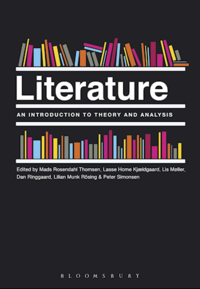What should every student of literature know? – And how does this align with computational methods?
Literary studies have done fine without digital humanities and computational approaches for centuries, but there are many reasons to take up the challenge of reflecting on what would be useful to do with digital tools. As most of the world's texts become digitized and most of the communication surrounding literature does so, too, there are both opportunities for gaining knowledge with methods that cannot be ignored in good faith, and there are ways to improve the way that literary criticism is carried out. Not everyone should learn to program, far from it, but being a scholar in the field of literature also demands a certain knowledge of computational methods. While carrying out investigations on one's own comes with a certain satisfaction (as well as hard work), the ability to quote and to make well-informed critique are also valuable genres of the field.
How to use this site
This site is based on the 33 topics from the 2017 volume Literature: An Introduction to Theory and Analysis (also available in Danish and Swedish). These topics do obviously not represent the ground truth about literary theory, but they do provide a useful frame for presenting the width of literary studies and a starting point for considering how computational methods can (or cannot) be of use. We believe that it is important to stress that computational approaches to literary analysis should not stand alone but be used on the basis of a well-informed reflection on the tradition of analysis. Rather than beginning with tools in search of problems, we go to the core issues of the discipline of literary criticism and ask how digital methods apply to these. Other introductions to literary studies and anthologies of criticism will address many of the same topics and could also be used together with this site.
For each topic we:
- Reflect on the challenge of formalizing the topic in a way that make sense computationally
- Suggest approaches that could enhance or aid the interest in the subject. For both beginners and advanced users of computational methods
- Provide scripts or links to resources that can be used with no or very basic training in programming
- Link to articles that have done pioneering work on the subject
Learn more about Literature: An Introduction to Theory and Analysis here.
